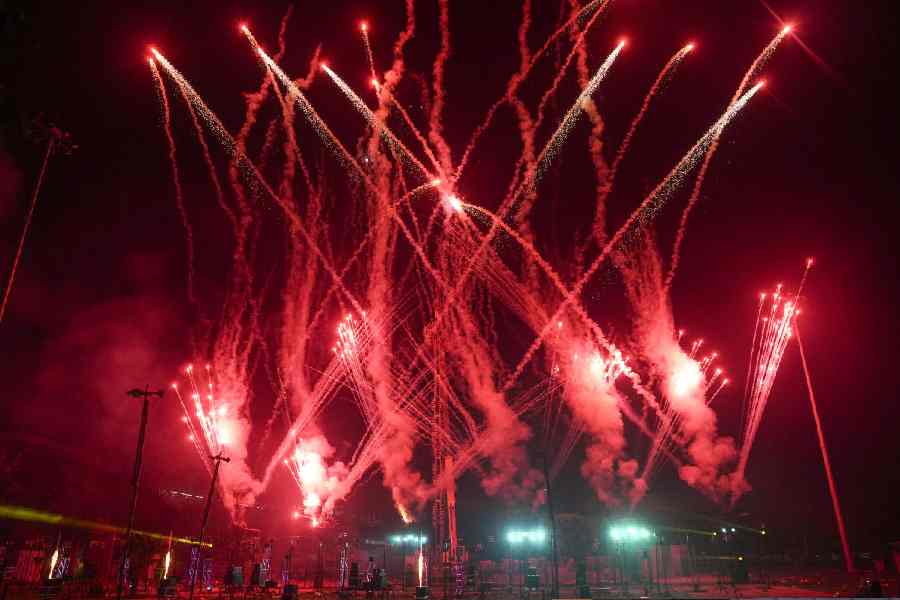As most Indian cities, including Delhi, woke up to a haze of smoke and “very poor” air quality after Deepavali celebrations, a few villages in Tamil Nadu have quietly shown that festivals can be celebrated without polluting the skies.
In Vettangudipatti, a small village in Sivaganga district, residents have been celebrating a cracker-free Diwali for nearly 50 years. Their decision was born not out of environmental activism, but compassion for the migratory birds that nest nearby.
“These villagers decided not to burst crackers to safeguard migratory birds,” said Supriya Sahu, Additional Chief Secretary, Environment, Climate Change and Forests, Tamil Nadu government.
The Vettangudi Bird Sanctuary, declared in 1977 and spread over 36.89 hectares, is home to the Black-headed Ibis, Open-bill Stork, cormorants, darters, spoonbills, and even the rare Chinese Pond Heron.
According to 78-year-old Arumugam, the birds first arrived in 1972. “Our elders noticed that when the birds came, we received good rainfall. When they didn’t, we suffered droughts,” he said in a video released by the Forest Department.
Around Deepavali, when the birds hatch their chicks, villagers realised that loud fireworks posed a threat. They voluntarily stopped bursting crackers, a practice that continues to this day.
“The villagers view the birds as a divine sign. Our role is only to thank them — every year, the District Collector and Forest officials visit with sweets,” Sahu added.
Neighbouring Kollukudipatti followed suit, and nearly 10 other villages around the Vellode Bird Sanctuary in Erode joined in two decades ago. Residents there celebrate with only sparklers and flowerpots, ensuring birds nesting in the 77.85-hectare sanctuary are not disturbed.
For these communities, the peaceful celebrations also bring economic benefits, as the bird sanctuaries attract nature enthusiasts and birdwatchers.
Netizens responding to Sahu’s social media post identified more Tamil Nadu villages — including Perumbur near Sirkazhi and Kittampalayam in Coimbatore — that avoid crackers to protect local bat colonies.
“These are beautiful examples of how harmony between man and nature can be nurtured — how Deepavali can truly be a festival of light and compassion,” Sahu said.
Meanwhile, Tamil Nadu reported 89 injuries due to firecracker-related incidents across the state during Deepavali, Health Minister Ma Subramanian said on Monday. After inspecting the burn treatment wards at Kilpauk Medical College in Chennai, the minister said 41 people had been treated and discharged, while 48 remained under care — 32 of whom required major surgery. No fatalities have been reported so far.
Special burn treatment wards were set up across government hospitals ahead of the festival, with 20 additional beds added in medical college hospitals, he added.
Delhi’s air quality nosedived on Diwali day, with 31 of 38 monitoring stations reporting “very poor” levels and three — Anand Vihar (402), Wazirpur (423), and Ashok Vihar (414) — slipping into the “severe” category, according to the Central Pollution Control Board.
The overall AQI stood at 334 at noon, and the Commission for Air Quality Management (CAQM) invoked Stage II of the Graded Response Action Plan across Delhi-NCR. Conditions are expected to worsen over the next two days.
In Kolkata too, the Air Quality Index for PM2.5 reached 238 at Victoria Memorial on Sunday evening, with several other areas recording “moderate” to “poor” levels. Environmentalists warned of immediate health effects for vulnerable groups.
While metro skies greyed with smoke, Tamil Nadu’s small villages stood out — their quiet celebrations offering a rare glimpse of what a truly green Diwali can look like.
(With inputs from PTI)

